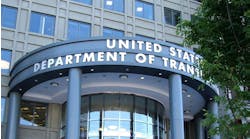Deadline nears for comments on young trucker pilot program, automated driving systems
The public comment periods on two proposals from the Federal Motor Carrier Safety Administration (FMCSA) that could help determine who is allowed to drive a truck and how the vehicles operate in the future are coming to a close.
The agency is accepting comments through Aug. 14 on its efforts to expand a pilot program for commercial drivers between the ages of 18-20 to operate in interstate trucking.
More than 1,000 comments from associations and individuals have already been filed, with opinions split over potential safety concerns and the impact a pilot program would have on the total number of available commercial drivers.
FMCSA said it is evaluating “the training, qualifications, driving limitations, and vehicle safety systems” the would be required in developing a pilot program for younger drivers that do not already have experience during prior military service.
Separately, FMCSA and the National Highway Traffic Safety Administration have extended the comment period to Aug. 28 on their advance notices of proposed rulemaking aimed at removing unnecessary regulatory barriers to the safe introduction of automated driving systems.
“One of the [Department of Transportation’s] priorities is to prepare for the future by engaging with new technology while addressing legitimate public concerns about safety, security, and privacy, without hampering innovation,” said Transportation Secretary Elaine Chao.
“FMCSA is hoping to receive feedback from commercial motor vehicle stakeholders and the motoring public on how the agency should adapt its regulations for the development of increased automated driving systems in large trucks and buses. We know that while many of these technologies are still in development, it is critical that we carefully examine how to make federal rules keep up with this advancing technology,” said FMCSA Administrator Raymond Martinez.
This is all taking place while the trucking industry awaits an announcement on potential changes to hours-of-service rules. Previously they were scheduled for publication on June 7 and then July 31.
However, last week sources inside the federal government told Fleet Owner the rules were still under review.
While the timing of the HOS rule remains a mystery, FMCSA on Aug. 12 announced a final rule that revises regulations governing the lease and interchange of commercial buses. Among the changes are a revised definition of leases to exclude carriers with FMCSA-issued operating authority that grant the use of their vehicles to each other.
The agency said the rule will result in $8 million in savings from regulatory costs. There are nearly 8,400 passenger carriers in the United States and more than 547,000 passenger-carrying CMV trips occur annually.
“We listened to bus industry stakeholders and narrowed the leasing regulations to focus on carriers that do not hold operating authority from the agency. This commonsense revision of the rules will reduce regulatory costs and maintain safety,” said Martinez.



